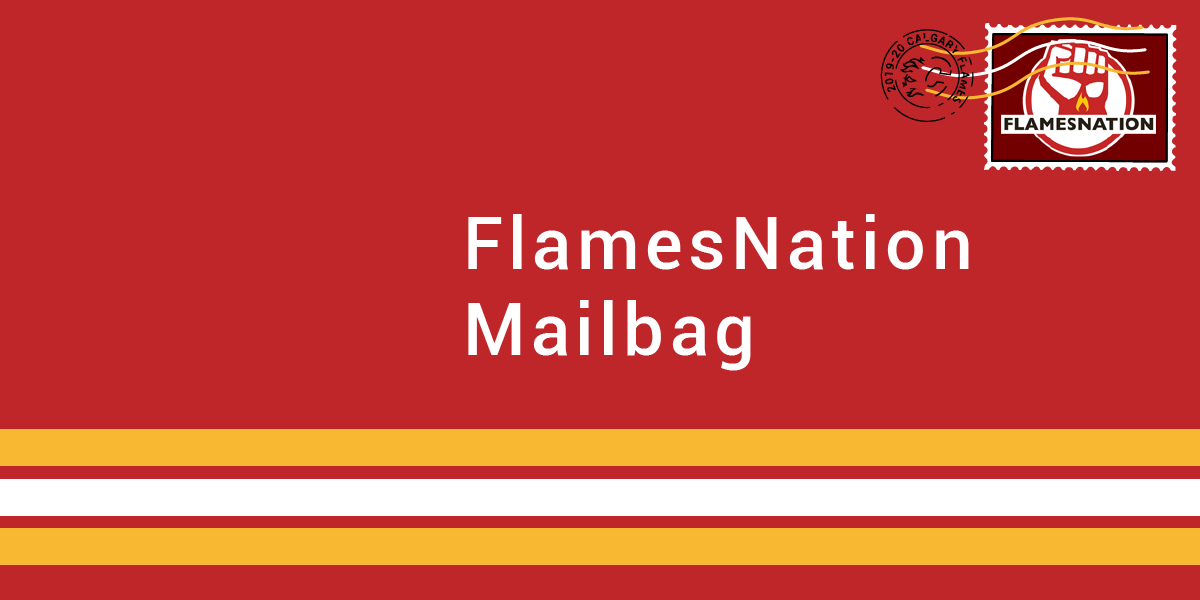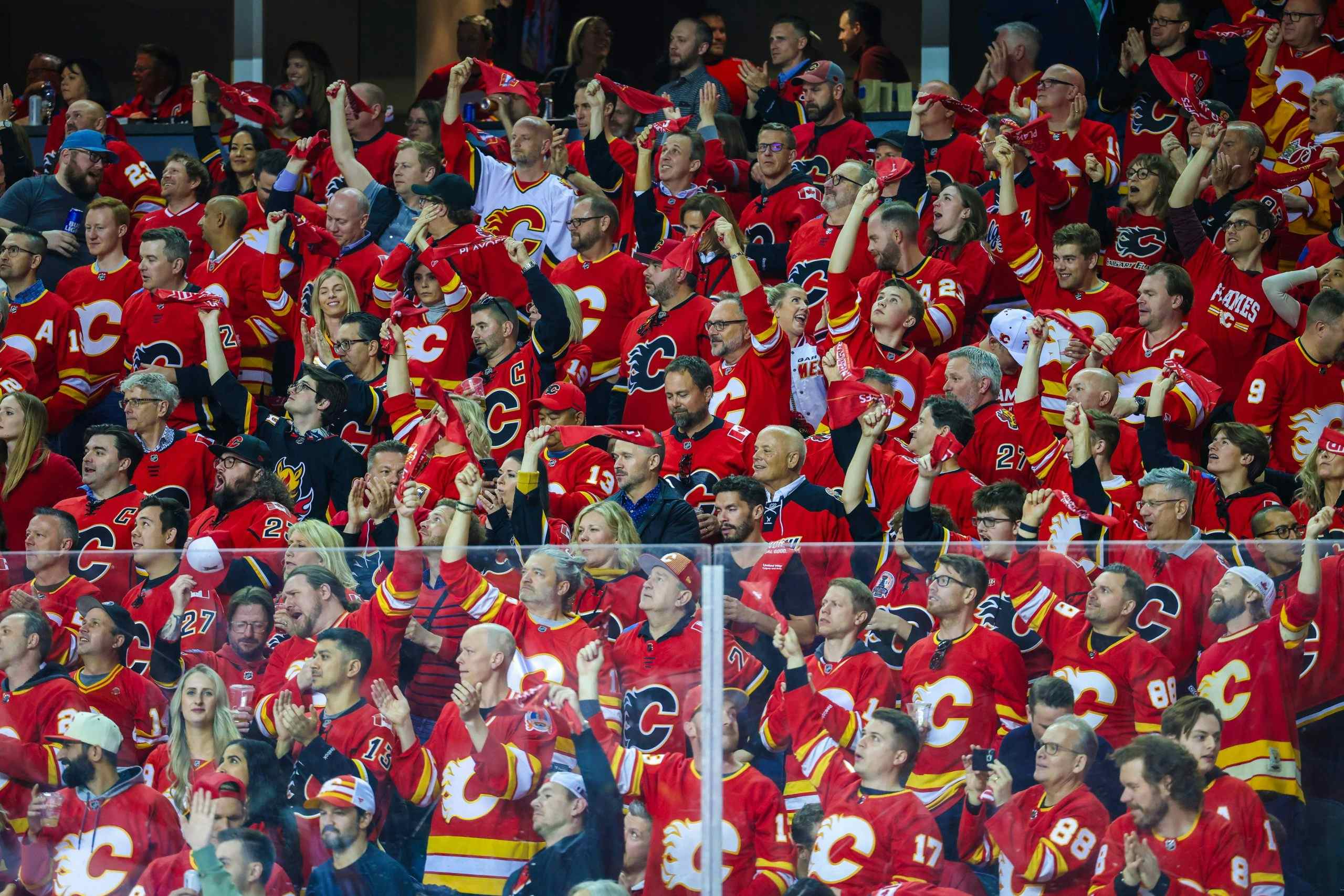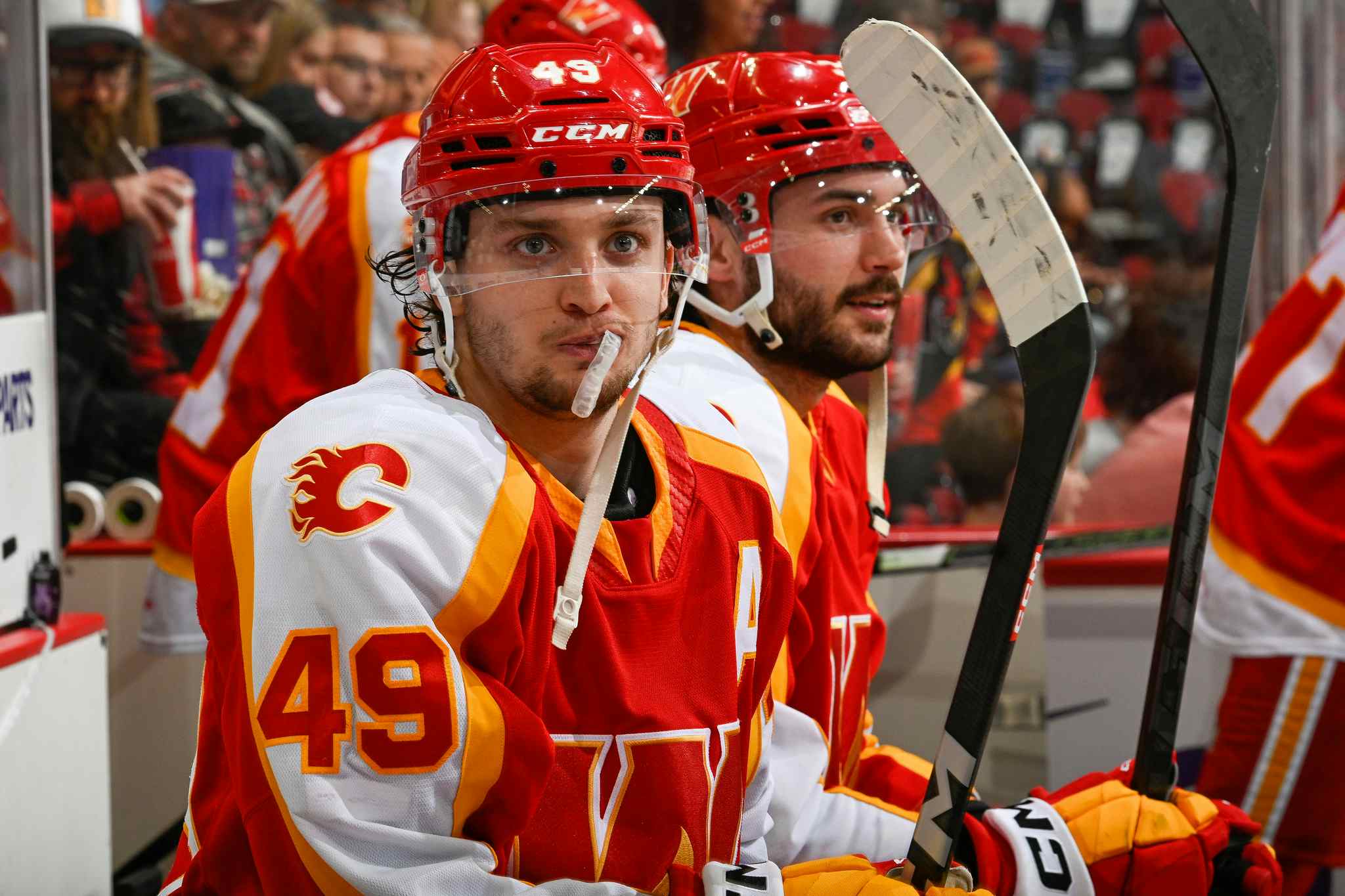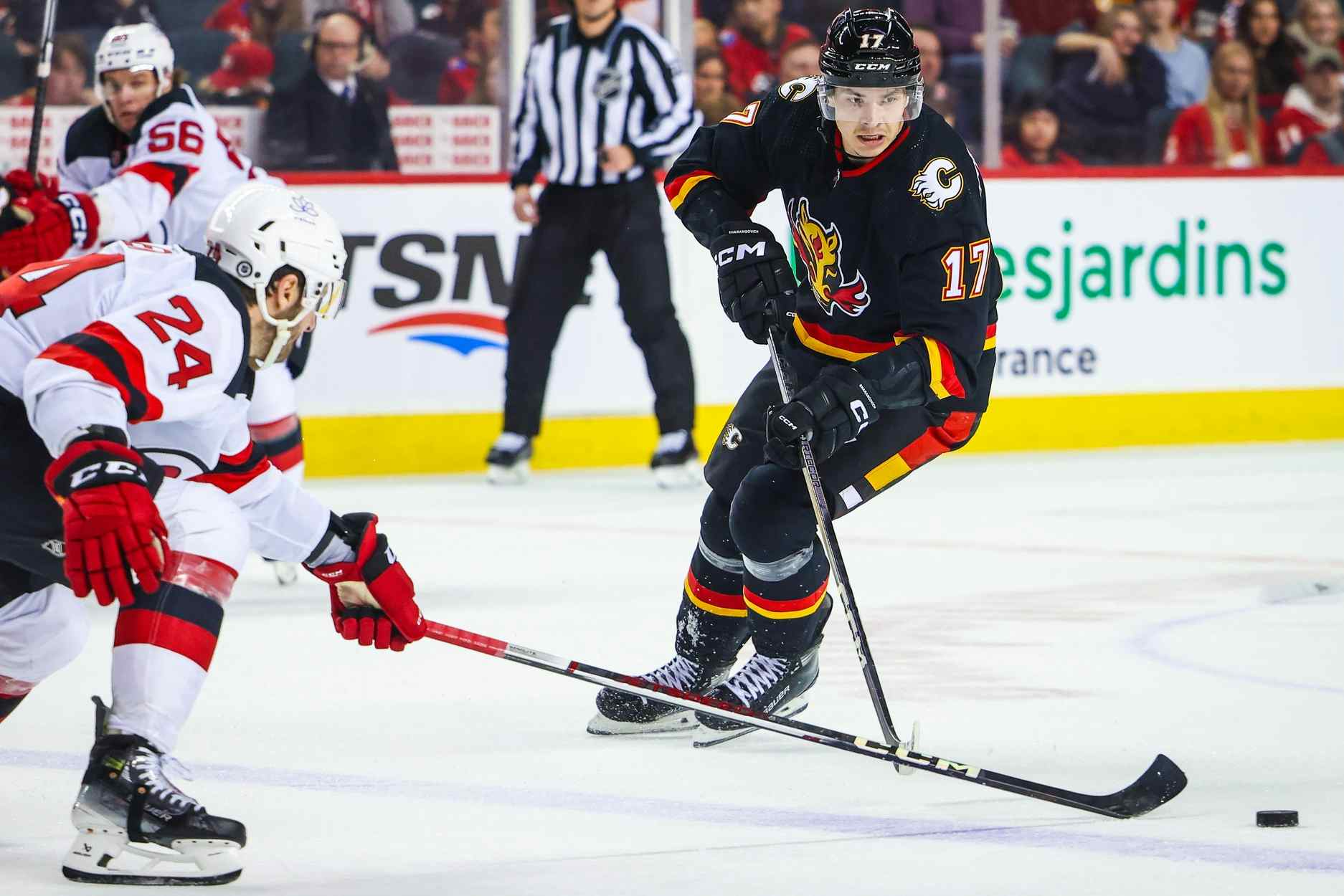FlamesNation mailbag: All-Star edition part 1 – asking the big questions

By Ryan Pike
4 years agoThrough the first 50 games of the season, it’s safe to say that Calgary Flames fans have a certain amount of unease regarding the club’s performance thus far.
Since we got so dang many good questions this week, we’re breaking the mailbag in half over two days. Here in part one, we tackle the big questions.
Why are Flames? Well, they were named the Flames when they arrived from Atlanta – they were named the Flames originally because of a Civil War era fire that General Sherman lit that burnt down much of Atlanta. Calgary also had a famous Great Fire – it’s why all our downtown buildings are (a) a certain age and (b) made of sandstone – and so nobody had strong objections to retaining the name when the club moved north.
Why do they Flames? Well, there are some compositional challenges with the team’s roster and cap structure that are currently hindering the team. (We’ll get into that a bit more later.)
I’ve covered the Flames for almost a decade and I know basically everybody who covers the team to any significant degree. It’s probably unfair to say that “Calgary media” refuses to criticize management.
Critical questions are asked of Brad Treliving frequently. But I’ll paraphrase some advice that Elliotte Friedman has frequently mentioned that he received when he began covering the Toronto Raptors early in his career: “save your bullets.” If you’re expecting the media throng to be foaming at the mouth every time the Flames lose a game, that’s not a realistic expectation because it wouldn’t be productive from a media perspective.
Media “bullets” are usually saved for key milestones: the draft, July 1, trade deadline, and garbage bag day. Regardless of whether the Flames make or miss the playoffs, it’s realistic to expect Treliving to face some tough questions about how they did so. But after a Saturday afternoon loss to Ottawa with 32 games left? Not as much.
Sub-question: What more could Treliving have done to improve the team?
Ben’s question begs a sub-question: what more could Treliving have done to improve the team over the summer? The big constraining factor was the salary cap, and the big challenge that he had to deal with was the fact that Matthew Tkachuk’s contract negotiations sprawled. Why did they sprawl? Well, the market for restricted free agents coming out of their entry level deals was super murky and it took until October for things to shake out clearly. He couldn’t do anything else until Tkachuk was settled – and by the time that deal was done it was far too late to make any substantial changes.
Treliving worked the phones. He tried to make deals. Nazem Kadri nixed a trade to Calgary. Multiple trades to open up cap space didn’t materialize, particularly once it became clear just prior to the draft that the cap wasn’t moving as much as everyone had anticipated. And then Juuso Valimaki’s knee exploded, further constraining the team’s ability to maneuver.
Yes, Treliving’s cap management hasn’t been amazing. He made bad bets on James Neal and Troy Brouwer. He bought out Michael Stone and then signed him again as a depth option. But several of the complicating factors this summer and this season that have made the Flames’ cap situation messy weren’t entirely his doing, and I’m not sure what I would have done differently when thrown similar curve balls.
Let’s tackle the trade aspect first. In short? Yeah, probably. The Flames have frequently been carried by four players this season: David Rittich, Cam Talbot, Tkachuk, and Elias Lindholm. Sean Monahan and Johnny Gaudreau simply have not been the needle-movers that they have been in previous seasons. Why’s that? It’s unclear, as it’s unlikely that either player is as injured as he’s been in previous seasons and both have been given opportunities to be sheltered in terms of linemates and deployments. It just hasn’t clicked for either of them this season, and they’ve made the Flames an easier team to play against rather than a tougher one. Regardless of how the Flames finish the season and/or playoffs, culturally it seems that a shake-up deal is inevitable.
A different coach? Well, Geoff Ward has done a pretty good job of shaking up lines, putting players who are performing well in favourable positions, and generally being nimble in terms of how he’s approaching games. He’s largely putting the right players out there, but it doesn’t always work out because the players aren’t always firing on all cylinders.
Honestly, I think management is waiting to see how the rest of the season goes and then seeing what changes they make to the roster before deciding on a coach. Maybe a perfect coach for whatever group they have in July comes available. Heck, maybe Ward already is that coach, but they likely don’t want to make commitments right now before figuring out what precisely they’re committing to – in terms of the fit of coach to team and team to coach.
That said, Ward’s doing good work in his audition. If he gets an inconsistent Flames squad to the playoffs, somebody is going to make him an NHL head coach very soon.
They make zero decisions based on fantasy hockey, nor should they. They rode Talbot two weeks ago likely because Rittich was getting beat in very specific ways and had some jumpiness in his game that they wanted to have practice time to fix.
A few people asked about this.
In short? If Gerard Gallant was willing to coach the Flames, or even had some ideas for the team, it’d be short-sighted not to consider him. But no coach is a magic bullet solution for key core players that aren’t performing – it would be akin to putting a fresh coat of paint on a house riddled with termites; fix the real problem first.
Recent articles from Ryan Pike





